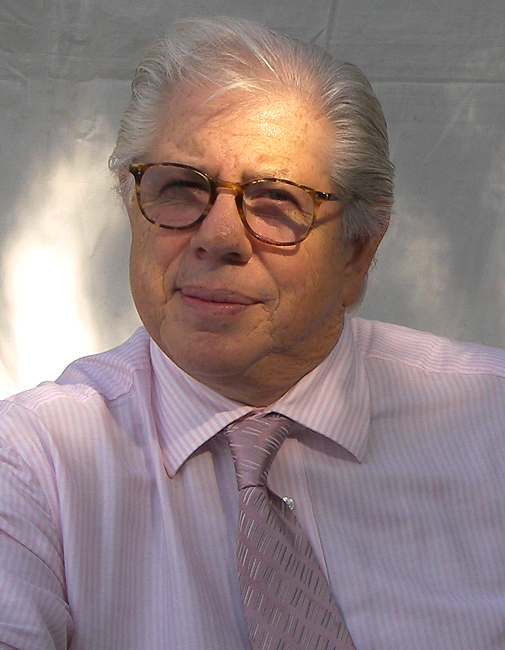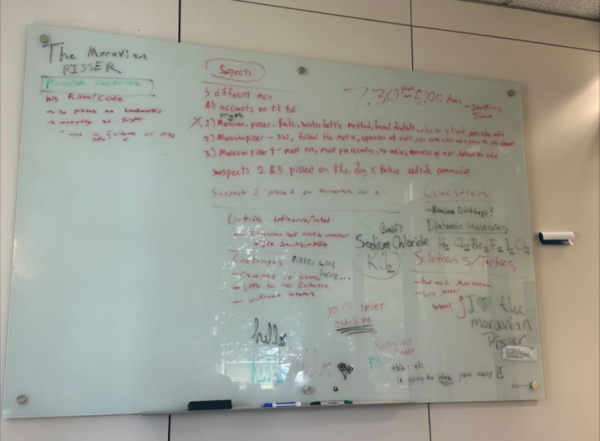Carl Bernstein: A Continuous Advocate of a Free Press
At the White House Correspondents’ Dinner earlier this year, writer Carl Bernstein said a journalist’s “job is to put the best obtainable version of the truth out there.”
Throughout his career, Bernstein has worked to consistently deliver just that.
As a young Washington Post reporter in the early 1970s, Carl Bernstein was assigned to cover a break-in at the Democratic National Committee Headquarters in the Watergate office complex in D.C. Police had caught five burglars who were repairing wiretapping devices they had installed in a previous break-in. Bernstein would later learn the break-ins were part of an intelligence plan by Republicans to learn more about the Democrats’ strategy for the upcoming presidential election of 1972.
Working with fellow Post reporter Bob Woodward, Bernstein connected the burglaries to acting Attorney General John Mitchell, who controlled a slush fund that paid for intelligence on the Democrats. Bernstein suspected that then-President Richard Nixon was involved, a suspicion he confirmed when he discovered a laundered $25,000 check in one of the burglars’ bank accounts, which was earmarked for Nixon’s re-election campaign.
Bernstein soon discovered that knowledge of the break-in, along with attempts to cover it up, reached into the upper levels of government, including the White House, the FBI, the CIA, and the Justice Department.
The eventual release of the Watergate Tapes shortly afterwards, in which Nixon reveals his involvement in covering up the burglary, led to impeachment proceedings against him. Facing certain impeachment, Nixon resigned from office on Aug. 8, 1974.
If not for Bernstein and Woodward’s reporting, it’s possible the Watergate investigation and Nixon’s resignation would never have happened. Gene Roberts, a former executive of the Philadelphia Inquirer, called Bernstein and Woodward’s work “maybe the single greatest reporting effort of all time.”
In 1973, the Washington Post earned a Pulitzer Prize in Public Service Journalism for Bernstein and Woodward’s reporting. Two years later, Simon & Schuster published their bestselling chronicle of the Watergate scandal, “All The President’s Men,” which was turned into an Oscar-winning movie starring Dustin Hoffman as Bernstein.
Bernstein’s experience with the Nixon administration led him to investigate abuses of power elsewhere. For example, he was the first to report that the real objective of Israel’s 1982 invasion of Lebanon was to remove the Palestinians from Lebanon, not to ensure border security, as Defense Minister Ariel Sharon had claimed.
Bernstein’s next big story was in 1992, when he reported for Time magazine on an alleged alliance between Pope John Paul II and Ronald Reagan. Bernstein later expounded upon the story in “His Holiness,” arguing that both the Pope’s spiritual influence and his support of Polish labor led to Communism’s downfall in Europe.
Soon, Bernstein turned his focus from the use and abuse of power to the subject of journalism itself. In a story for The New Republic titled “The Idiot Culture,” Bernstein railed against the modern media’s obsession with gossip and sensationalism, asserting that the media should get back to real reporting.
As part of the 2017 Cohen Arts & Lecture Series, Carl Bernstein will speak on “The Problem of Washington,” on Tuesday, Oct. 24 at 7:00 p.m., in Johnston Hall.
In 2017, more than 40 years after Watergate, why is Carl Bernstein still relevant?
The current political discourse may provide an answer. Many would say Bernstein’s aforementioned authority on the use and abuse of power, and on the media in general, is incredibly relevant to current times. One only needs to look at Bernstein’s multiple appearances on cable news programs to see why.
Bernstein often offers his opinion on Donald Trump’s presidency and its media coverage while appearing on these programs. On CNN, he recently said that the current presidency “calls on our journalists to do a different kind of reporting.” Bernstein continued with, “Trump’s attacks on the American press . . . are more treacherous than Richard Nixon’s attacks on the press.”
Bernstein continues to critique modern media, though, especially cable news. According to Bernstein, the largest difference between today and the Watergate era is “that we are now in the midst of a cold civil war in this country.”
Bernstein says that this civil war makes “fact-based debate . . . impossible in this culture.” He even partly blames reporters for propagating the idea of “different truths” when they come on the air to discuss their stories.
In a time where the press is viewed as an enemy of the people, Carl Bernstein is an incredible example of what investigative journalism can do. Rather than being the enemy of the people, Bernstein maintains that the free press is “the last resort of the American people.”
Bernstein’s lecture is free, but you must register via this link to attend. Students are invited to a question-and-answer session with Bernstein, on Oct. 24, 4:00 p.m. – 4:45 p.m., in the Dana Lecture Hall (Collier Hall of Science).













Brian W. Smith • Oct 31, 2017 at 8:54 pm
I’m sorry but I have to disagree with Carl Bernstein about the Trump Presidency and the press today. Even though I’m not the biggest Trump fan because of some personality issues and I feel he should articulate his message better I do believe we are in a dangerous time when the liberal media have become an extension of one party over the other and that is the democrats. All the liberal media display journalism and perpetuate fake news when they have a set agenda to destroy a canidate and their political party. Every news report is designed to make Trump look bad and several times they had to retract their story when it was found out to be false. We hear all the time about this Trump Russian collusion thing while ignoring the Clinton Uranium one scandal and recently the phony Trump dossier story. Also the liberal media doesn’t tell anything of the good changes to our economy the Trump Presidency has accomplished like eliminating job killing regulations, how many companies either decided to stay here or how some new companies are interested in starting new factories here. You also don’t here the truth about how many more jobs are being created and how in 10 months we went from 1.5 GDP (Gross Domestic Product) under Obama to 3.1 GDP growth under Trump. Why because it doesn’t fit their partisan narrative. If it weren’t for Fox News (which was rated no. 1 for truth content) most people would have a completely false narrative of the Trump presidency. In opinion polls most people have a negative view of the liberal media and stations like CNN have had a dramatic drop in their ratings. I feel that all news organazations have a role to report both sides of the issues and list the successes and failures of any politician based on the facts and not because the media has a certain agenda in mind.